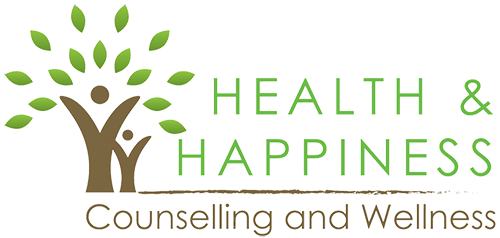Mental Health Counselling Services in Vaughan, York Region, and The Greater Toronto Area
Because everyone deserves to be Healthy & Happy
Health & Happiness Counselling and Wellness is proud to offer counselling for children, teens, and adults
It is important to understand that there are ways to cope with what can seem like overwhelming mental health challenges.
There are many people with these diagnoses who are successful in their adult lives, and starting counselling early is an excellent way to manage feelings and behaviours.
Social Anxiety Counselling
Social anxiety, made worse by COVID, can impact school attendance and performance. It can be treated and overcome.
Depression Counselling
Depression can be debilitating, but it doesn't have to be. Depression counselling can help find ways to manage depression.
ADHD & ADD Counselling
Attention issues often show up in childhood and can be very frustrating. Put strategies in place early to help your child find their strengths!
Generalized Anxiety Counselling
Working with a psychotherapist can help children, teens and adults manage their anxiety.
Bullying Counselling
Bullying, whether online or in person, can be traumatic. Counselling for bullying can help children and teens see that it's not their fault.
Online Dependency Counselling
Online dependency is a challenge that many young people face. Counselling can help.
Parental Anxiety
Navigating parenthood can be demanding. Our counselling services offer parents a safe space to explore and manage the stresses associated with juggling responsibilities, helping you find harmony in your role as a caregiver.
Financial Stress
Dealing with financial challenges can impact mental health. Within your reality, learn how to cultivate a positive mindset to navigate the mental health aspects of financial challenges.
Self-Care for Parents
Our counseling services emphasize the importance of self-care for parents, providing tools and strategies to prioritize your well-being, maintain resilience, and navigate the challenges of parenthood with a positive mindset.
ADHD & ADD Counselling for Adults
If you're a parent grappling with attention-related challenges, our counseling services can guide you in implementing effective strategies. By understanding and addressing ADHD or ADD, you can create a more structured and supportive environment for both yourself and your children.
Grief
Therapy can help to process the emotions associated with loss, and foster healthy coping mechanisms. Whether you are experiencing recent loss or struggling with unresolved grief, our services are here to offer guidance and empathy as you navigate through the grieving process
PTSD & Trauma Support
We offer a compassionate and understanding environment for individuals coping with the aftermath of traumatic experiences. Sessions aim to address and heal the emotional scars of trauma work to help regain a sense of safety, manage distressing symptoms, and foster resilience.
Video Game Dependency Counselling
Video games can be engaging, but also controlling. Video game dependency counselling can help young people find balance.
Divorce Counselling
Divorce is never easy, especially for children and young adults. Through counselling for divorce, young people can learn to see that it's not their fault.
Other Mental Health Challenges
Counselling with a Registered Psychotherapist can help with a wide range of mental health challenges.
Common Approaches Used at Health & Happiness: Counselling and Wellness
Therapy works best when the client can find value in the approach being used. The primary therapeutic method that we use is Cognitive Behavioural Therapy (CBT). CBT works by focusing on how thoughts, emotions, and behaviours influence each other. While we may feel that our thoughts are “real,” often we will think things that are not supported by any evidence. A teenager could think that nobody likes him, and when he sees a friend walking past his house without greeting him he could react in anger. But did his friend even know he was there?
Other approaches that we employ include Dialectical Behaviour Therapy (DBT), Solution Focused Therapy (SFT), Mindfulness and others. Supporting all of these approaches is Active Listening – making my focus the client and what they are communicating. We firmly believe that any solutions to a client’s challenges can be found within the client, and the best way to bring this out is by actively listening.
CBT focuses on the relationship between thoughts, emotions, and behaviours where each of the three parts influences the other two.

CBT identifies three layers of cognitions. Core beliefs, which are the hardest to change, impact how we see ourselves. Our Underlying Assumptions are based on our core beliefs, which help us predict how we will interpret the way in which the world operates. Automatic thoughts (AT) are thoughts that we have, which might not be noticed by us, throughout the day and are based on how our core beliefs impact our underlying assumptions.
If a child’s core belief is that they are a failure at school, then their underlying assumptions will be based on that belief. They might feel that regardless of what they try they will not succeed, which then can lead to negative automatic thoughts such as “I’m about to fail another test.”
DBT was created to treat borderline personality disorder and also can help people suffering from depression and trauma. For people who have difficulty in regulating their emotions and communicating effectively, DBT can improve their distress tolerance abilities and help them find a balance in their lives.
Within DBT there is the concept of the Three Minds:

The Rational Mind
Our logic, use of facts, and focus come from our rational mind. It is what helps us make intelligent decisions that take into account the different variables that we need to consider.
While important, if we live solely in our rational mind, our emotions get held inside us and start to fester. If not released, they can erupt like a pot boiling over.

The Wise Mind
Our Wise Mind balances our emotions and intellect and helps us make decisions supported by facts as well as in line with our gut feeling. Living in our Wise Mind gives us a sense of stability and peace between our emotions and logic. It helps us regulate our emotions by using our logic. Striving to exist in our Wise Mind is a very natural complement to Mindfulness.
 The Emotional Mind
The Emotional Mind
Passion and feelings, anger and ecstasy rule in our Emotional Minds. This is the reactive part of our personality and is often the source of our immediate responses.
As human beings our emotions are a part of us and without them we could not function. Living too much in our Emotional Mind prevents us from using our cognitive abilities and leads us to stress and conflict.

Solution focused therapy (SFT) is an approach that puts its focus on achieving specific goals rather than the reasons that a problem exists. In other words, if a teen is having problems completing their homework or is having trouble sleeping, a SFT approach would focus on a solution to their problem rather than the cause.

 Typically, when dealing with this kind of problem, the solution can be working with the student to “chunk” their project into smaller pieces. By doing this, a student learns to see their work as a collection of smaller pieces that are easier to tackle. As a result, their anxiety can be reduced and their school performance improved.
Typically, when dealing with this kind of problem, the solution can be working with the student to “chunk” their project into smaller pieces. By doing this, a student learns to see their work as a collection of smaller pieces that are easier to tackle. As a result, their anxiety can be reduced and their school performance improved.
Mindfulness is:
Being aware of the present. Acknowledging what is happening in the moment. Taking your focus from the past or future and anchoring it in the here and now.

Being Mindful Means:
Embracing the truth about your present. Experiencing with renewed curiosity everyday activities.
Paying attention to your feelings and thoughts while understanding that there is no right or wrong way to feel or think at any particular moment.
Experiencing the gifts in your life that you have even when facing challenges.
Not judging the present when trying to make changes for the future.
 Mindfulness for Young People:
Mindfulness for Young People:
Allows them to discover strengths and talents that may be buried by their challenges.
Teaches them to control their anxiety by focusing on the present rather than worrying about the future.
Supports their efforts to deal with the past by providing ways to live in the present.
Health & Happiness Counselling and Wellness offers counselling services in Vaughan for children, teens and adults.
Mental health counselling can help with:
School Anxiety Counselling
COVID-19 Anxiety Counselling
Depression Counselling
ADHD & ADD Counselling
Online Dependency Counselling
Video Game Dependency Counselling
Generalized Anxiety Disorder Counselling
Divorce Counselling
Internet Bullying Counselling
In-person Bullying Counselling
Anger Management Counselling
Other Mental Health Challenges



